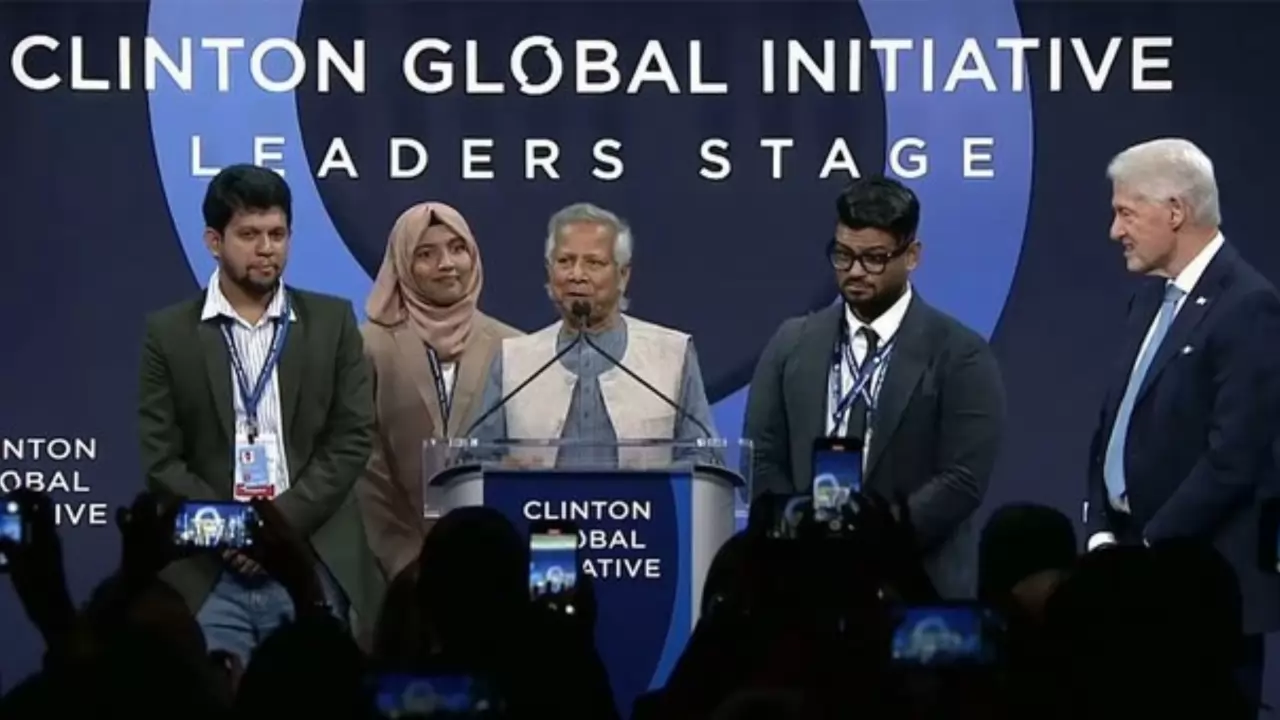
Yunus introduced Mahfuz Alam (X/@VHindus71)
A major controversy has erupted after Mr. Yunus introduced Mahfuz Alam, the leader of the banned Islamic terrorist organization Hizbut Tahrir, as the "brain of the whole revolution" aimed at toppling Bangladesh's Prime Minister Sheikh Hasina. The introduction took place at a high-profile event in the United States, where former US President Bill Clinton was present and applauded. This incident has drawn significant backlash, raising questions about the endorsement of extremist figures and the potential implications for international relations and counterterrorism efforts.
Critics have condemned the incident, emphasizing the dangers of providing a platform to leaders associated with terrorist organizations. Hizbut Tahrir has been banned in several countries due to its radical ideology and efforts to destabilize governments. The introduction of Mahfuz Alam at such a prestigious event has heightened concerns about the influence of extremist networks and their ability to gain legitimacy through public endorsements.
In the USA Mr Yunus introduced Mahfuz Alam the leader of Hizbut Tahrir the banned Islamic terrorist organization, as the "brain of the whole revolution" to out Hasina . Bill Clinton clapped. @VivekGRamaswamy @TulsiGabbard pic.twitter.com/U7ghpxrQjZ
— Voice of Bangladeshi Hindus 🇧🇩 (@VHindus71) September 25, 2024
This controversy also places a spotlight on the delicate nature of US-Bangladesh relations, particularly in the context of counterterrorism. Bangladesh, under Prime Minister Sheikh Hasina, has been a key ally in the fight against terrorism in South Asia. The apparent support for a figure seeking to overthrow her government could strain diplomatic ties and complicate ongoing efforts to combat extremist groups in the region.
As the backlash grows, many are calling for a clear response from both US and Bangladeshi authorities to address the implications of this incident. The introduction of Mahfuz Alam as a revolutionary leader, coupled with the applause from a former US president, has sparked a debate on the responsibilities of global leaders in countering extremism and promoting stability.





Copyright © 2026 Top Indian News
